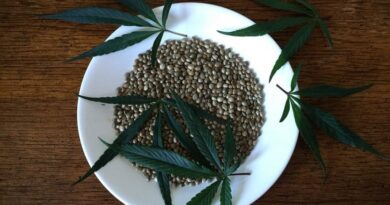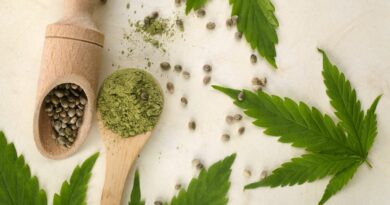Exploring Cannabis Testing Regulations: Focusing on Fungus, Bacteria, and More
The cannabis industry is in its early stages of development and constantly undergoing transformation due to rapid growth. A significant aspect of this evolution is observed in the realm of industry regulations. Since there are no established national or federal standards, cannabis businesses operate within the framework of state laws, leading to potential confusion and ambiguity for professionals navigating this dynamic landscape.
Safety lies at the core of existing regulations, as it remains the primary concern for cannabis businesses engaged in cultivation, packaging, and distribution. The testing and prevention of fungus, bacteria, and other contaminants are pivotal steps in ensuring consumer safety. This article delves into the importance of cannabis safety, the current regulatory landscape, and steps that cannabis cultivators can take to meet safety standards.
Significance of Cannabis Safety
Cannabis safety and product integrity are critical considerations for several reasons, especially given that cannabis is intended for ingestion. Contaminants in the product pose a serious risk to users, and with the rising use of medical cannabis, individuals with compromised immune systems face even greater dangers. Vigilance against these risks is essential for cannabis growers to uphold the safety and well-being of end users.
Indoor cannabis cultivation often creates environments conducive to the growth of mold, bacteria, and contaminants. Facility operators must be equipped to control these conditions and conduct necessary tests to identify pathogens as required by local regulations. Additionally, manufacturers must be prepared to address unacceptable levels of contaminants when detected.
Existing Regulations in the Cannabis Industry
With no uniform national regulations in place, cannabis regulations vary by state, with a common focus on product safety. States typically mandate testing for specific contaminants, and products exceeding acceptable contaminant levels must be destroyed. Beyond safety concerns, product loss can significantly impact the bottom line for manufacturers.
Common tests required by state regulations include:
- Total yeast and mold
- Select mold strains
- Salmonella
- coli
- Total aerobic presence
- Total enteric presence
Some states may impose additional testing for pathogens, exemplified by New York’s requirements for testing Mucor spp, Streptococcus spp, Aspergillus spp, and more. Some manufacturers are also implementing in-house standards exceeding state regulations, acting as a proactive measure against contaminants and potential future federal regulations.
Regulations serve not only to protect end users but also to mitigate risks for growers and facility personnel.
Meeting Safety Standards with Cleanrooms
To comply with regulatory standards and ensure the safety of end users and workers, many cannabis facilities are adopting cleanroom settings and practices in their cultivation operations. Cleanrooms, commonly used in industrial, medical, and food-grade manufacturing, create controlled environments to minimize the risk of contaminants reaching manufactured products.
Cleanrooms achieve this through:
- Cleanroom design: Incorporating features such as easy-to-clean, non-porous surfaces, humidity-resistant materials, and modular construction to prevent external contaminants.
- Controlled airflow: Employing carefully designed airflow systems with HEPA filters to cycle air and prevent contaminants from reentering.
- Personnel procedures: Enforcing controlled access to cleanrooms, requiring proper preparation, gowning, and cleaning procedures for anyone entering. Strict procedures within the cleanroom minimize and prevent cross-contamination.
As the cannabis industry continues to grow, industry regulations will evolve. Understanding the current regulatory landscape equips professionals to make informed decisions for the safety and compliance of their facilities.
Infographic provided by Technical Safety Services, provider of cleanroom testing




